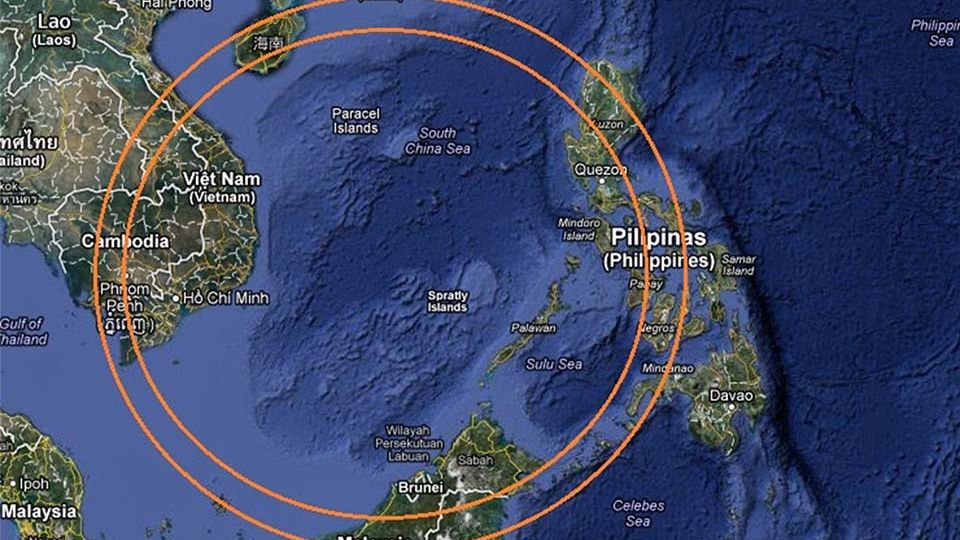July 26, 2024
JAKARTA – Before leaving office on Oct. 20, President Joko “Jokowi” Widodo has a golden opportunity to help bring long-lasting peace to the South China Sea (SCS). He can work with Philippine President Ferdinand J. Marcos Jr to realize a special code of conduct on the contested sea among ASEAN members, especially those with overlapping claims or interests in the natural resource-rich waters.
A unified stance among ASEAN members on the SCS could break the deadlock in the negotiation of the long-overdue code of conduct with China, which claims nearly the entire maritime territory. The absence of such a code of conduct has contributed to repeated conflicts among the claimants, most recently between the Philippines and China, which if not handled with care will prompt big powers to join the fray.
In November last year, President Marcos Jr unveiled his plan, saying code of conduct negotiations between China and ASEAN were very slow and therefore there was a necessity for the bloc to establish an internal code of conduct.
Of course, as a matter of courtesy, this year’s ASEAN chair Laos should receive prior information about the diplomatic move and so should other ASEAN members. A special summit among the concerned countries specifically on this matter can be held on the sidelines of the ASEAN Leaders Summit and related gatherings with the regional bloc’s dialogue partners in Vientiane in early October.
ASEAN can learn from Indonesia and Vietnam in resolving maritime border disputes. In December 2022, the two countries agreed on their respective Exclusive Economic Zone (EEZ) boundaries in the northern part of the Natuna waters, ending 12 years of talks.
Finding common ground on the SCS, including in the matter of overlapping claims, would strengthen ASEAN’s bargaining position vis-à-vis China. This lack of unity has contributed to foot-dragging in the code of conduct negotiations. ASEAN non-claimant members and those that have no interest in the South China Sea have often stood between the bloc and an agreement.
A mini summit among concerned leaders is needed to find solutions to pressing issues facing the group or its individual members. In the case of the Manila-Beijing dispute in the SCS, the Philippines as the initiator can take a leading role in the special summit.
Once the ASEAN leaders can settle their differences and reach a deal, the next step will be proposing a meeting with Chinese President Xi Jinping. While this may look easy on paper, the collective undertaking will be fraught with challenges.
Such a mechanism, however, is not unprecedented. If it materializes, ASEAN could at least prove doubters wrong about its silence or inaction in response to a lopsided dispute between an individual group member and a great power like China.
We call on Foreign Minister Retno LP Marsudi to seize on the momentum of this week’s ASEAN foreign ministerial meeting and the ASEAN Regional Forum (ARF) in Vientiane to work with Philippine Foreign Secretary Enrique Manalo in convincing four SCS claimants – Brunei, Malaysia, the Philippines and Vietnam – and Singapore to talk about the need to realize Manila’s initiative.
Singapore has a direct interest in the SCS because it is directly connected to the Malacca Strait, of which Singapore is a littoral state. More than 21 percent of global trade transits through the strait and the SCS, contributing significantly to Singapore’s economy.
Indonesia is not a claimant but has been in a quarrel with China over Beijing’s nine-dash-line policy that overlaps Jakarta’s sovereign rights in the Natuna waters. Beijing insists that the waters have been part of the fishing grounds of its fishermen for thousands of years.
An ASEAN agreement on the SCS code of conduct would be a diplomatic hallmark of outgoing President Jokowi and his chief diplomat Retno, and a legacy that would help president-elect Prabowo Subanto navigate the challenges facing ASEAN in the years to come.


